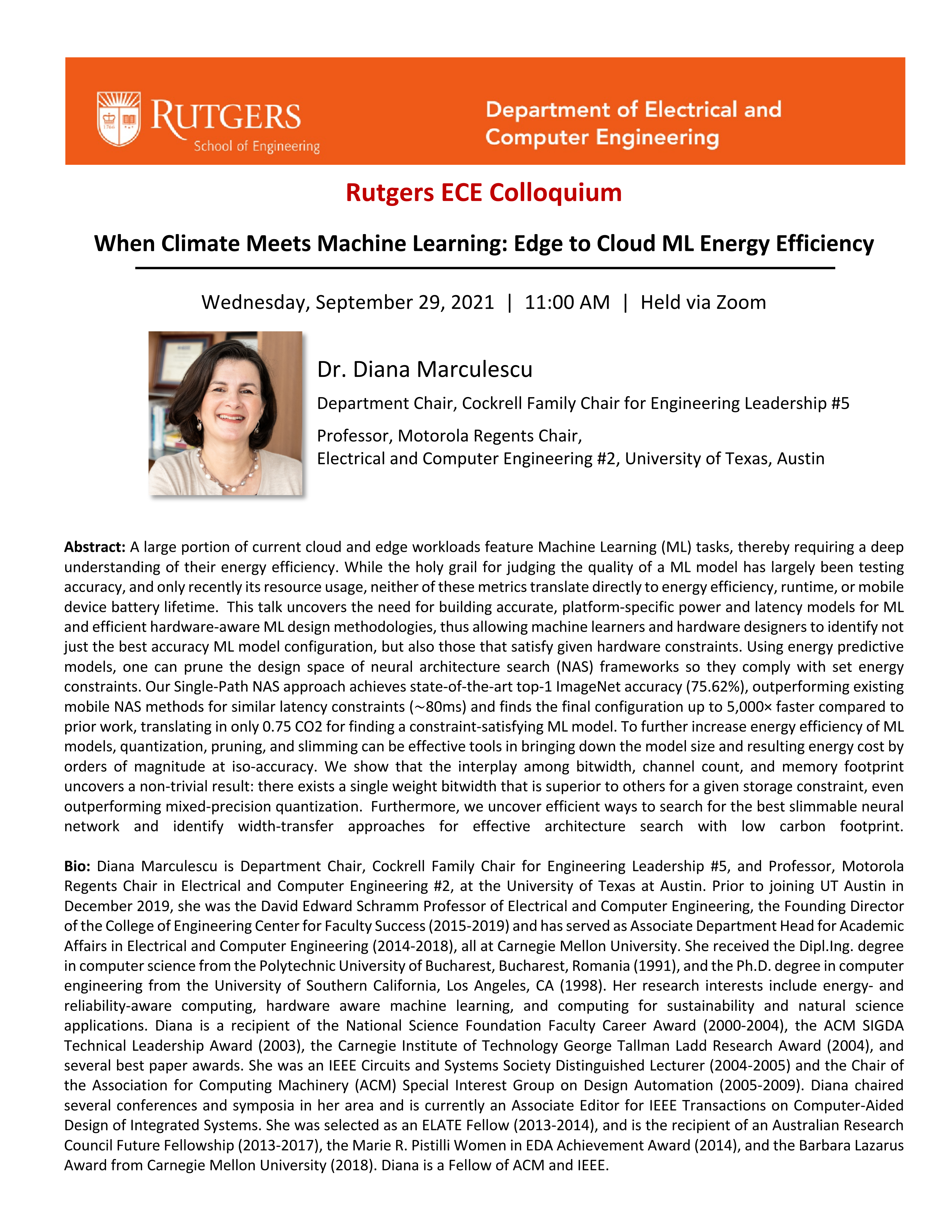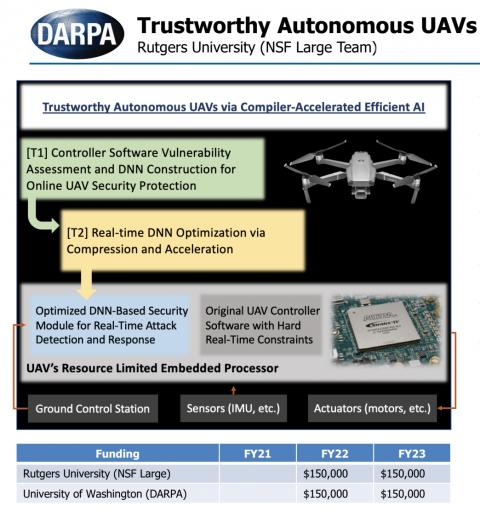ECE Colloquium - Yevette Carmichael, Beyond Conversations Consulting, LLC
Guest Speaker Series - Efficient AI Seminar - "Circuit and System InnovationsTowards Efficient Processing-in-Memory Accelerators for AI and Security"
You're Invited!
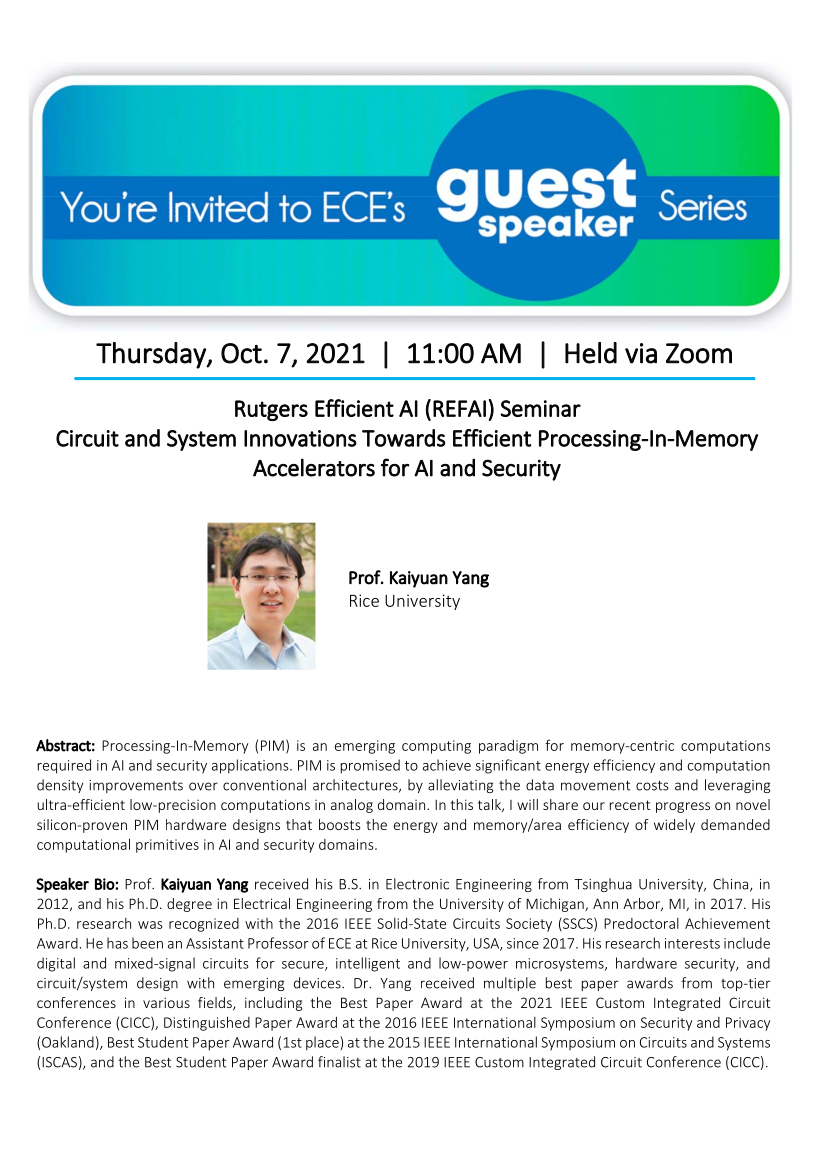
ECE Colloquium - Dr. Diana Marculescu, University of Texas, Austin
Guest Speaker Series - Efficient AI Seminar - "Circuit Design and Silicon Prototypes for Compute-in-Memory for Deep Learning Inference Engine"
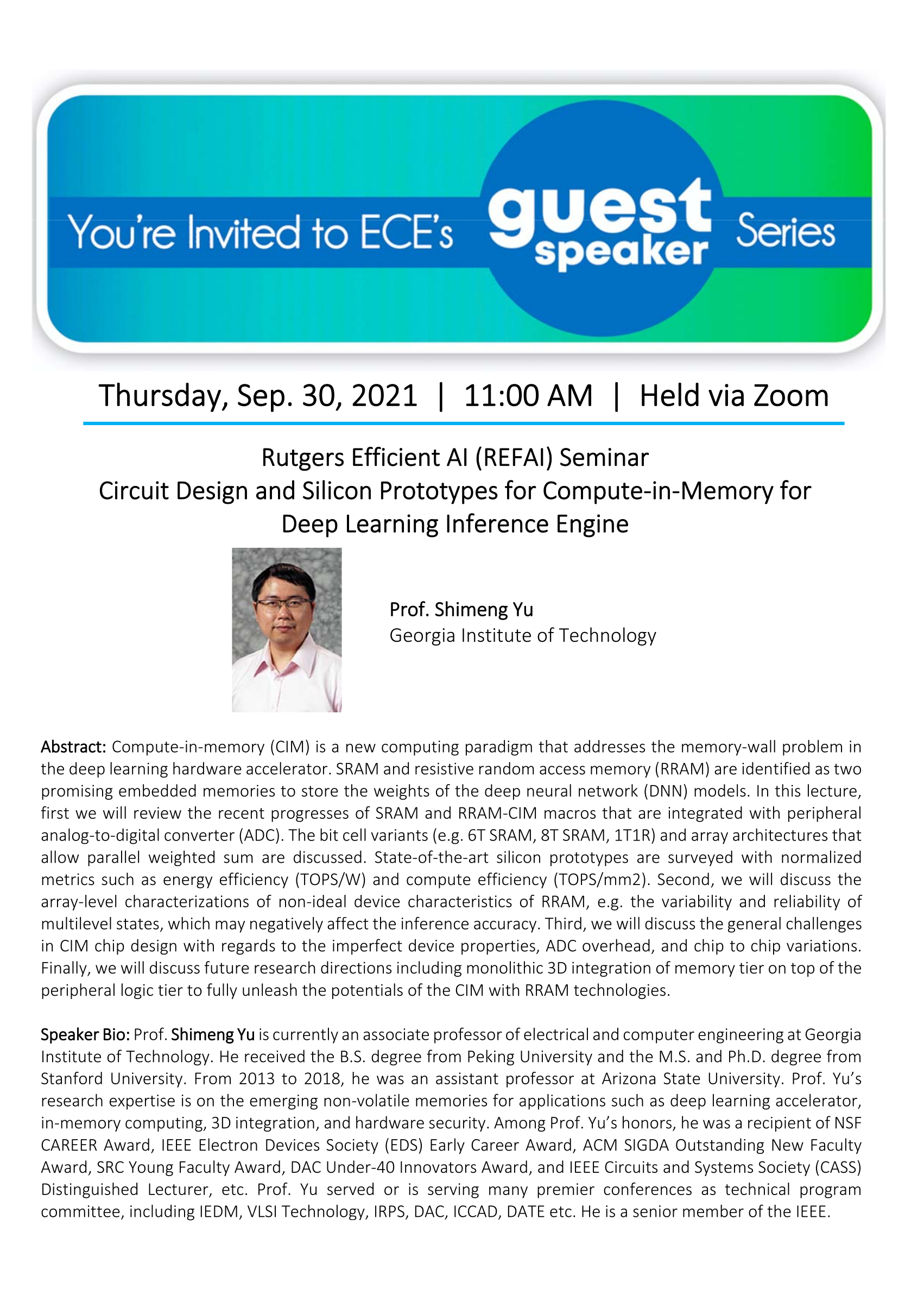
ECE Capstone Expo 2022
SAVE THE DATE: ECE CAPSTONE EXPO 2022
Guest Speaker Series: Efficient AI Seminar with Dr. Cong Hao
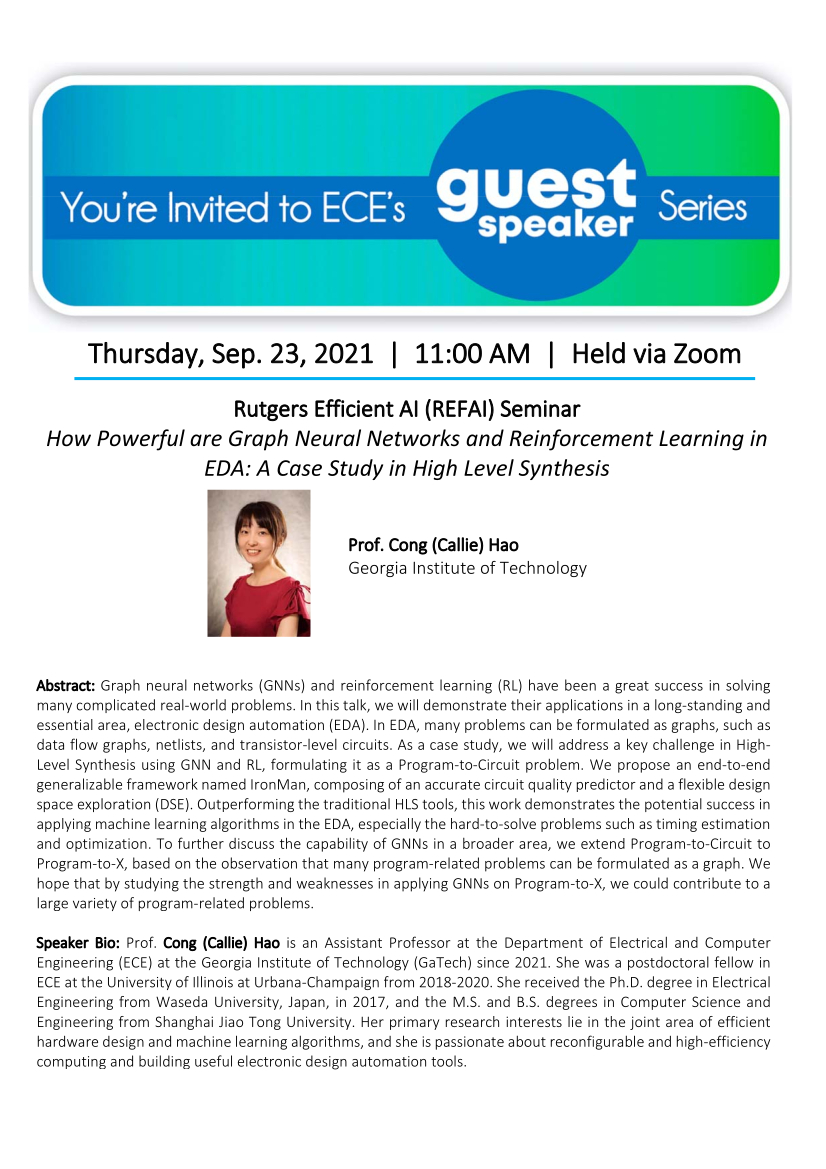
Emina Soljanin receives NSF US-Israel Binational Science Grant for Advancing Reliable Storage for Mobile Edge Services
Emina Soljanin receives NSF Grant for Enabling Low-Latency Communications Services
ECE Professor Emina Soljanin is the recipient of a new NSF award for the research project titled "Service Rates of Codes." This three-year $500,000 project is funded by the Communication and Information Foundations (CIF) program that supports foundational computer science and engineering research and education to advance the areas of communication, information theory, signal processing and networking.
Distributed storage platforms support major systems that operate under high uncertainty but have strict, low-latency requirements. Such systems include health (remote surgery), finance (electronic trading), commerce (online shopping), cloud gaming, self-driving cars, and augmented reality. In most of these emerging applications, users’ instantaneous and expected numbers and their data interests extensively fluctuate. Therefore, traditional storage solutions, designed and provisioned to satisfy specific expected demands, are inadequate. This project first postulates a new metric that should be an essential consideration in designing efficient distributed storage that must provide low latency for time-sensitive applications and remain stable under high uncertainty. It then offers optimal storage solutions. Besides that, it advances the fundamentals of coding theory, optimization on graphs, and real and finite geometry.
More details on the project can be found on the NSF page here.
Congratulations Emina!
ECE Researchers receive NSF Supplement Grant to develop Trustworthy Autonomous UAVs via Compiler-Accelerated Efficient AI
A team of Rutgers ECE researchers led by Associate Professor Dario Pompili (PI) along with co-PIs Saman Zonouz (Associate Professor) and Bo Yuan (Assistant Professor) are the recipients of a $280K supplement award from the National Science Foundation under the DARPA-NSF Real-Time Machine Learning (RTML) program for the project titled "Trustworthy Autonomous UAVs via Compiler-Accelerated Efficient AI,” in collaboration with the University of Washington (UW).
The ECE team will optimize their developed Deep Neural Network (DNN)-based Unmanned Aerial Vehicle (UAV) controller security solutions (via firmware reverse engineering and symbolic execution) that include real-time intrusion detection and response capabilities. This project will enable trustworthy UAV flight operations despite complex security attacks via optimized distributed deployment of data-driven AI-based intrusion resilience on UAVs resource-limited processors. The technical challenges addressed in the project include: (1) Accurate and optimal security monitoring and decision making for flight-time attack detection and response; and (2) Resource-optimization and DNN acceleration for execution of security solutions side-by-side along with the drone’s main controller software stack. Success will be measured via full flight demonstration of security-enhanced UAV controllers against various attack types, e.g., Denial of Service (DoS), false data injection, and vulnerability exploitation. As part of this DARPA-NSF collaborative program, the team will deliver the first working solution and open research directions for use of real-time efficient AI for security protection of cyber-physical safety-critical platforms even beyond UAVs.
More details on the project can be found at the NSF page here.
Congratulations Dario, Saman and Bo!



